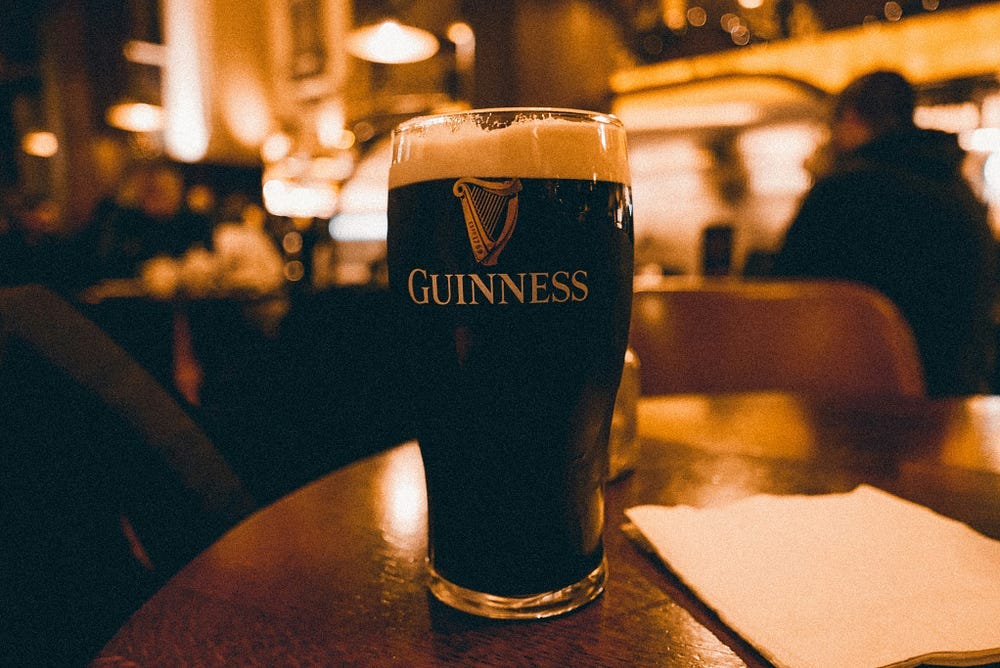
Love or preference
There’s a bit of a difference between love and liking.
The gurus tell you this, the mystics moan it from their caves, the scriptures all say it if you read them even with the light off.
Love, we’re told, is our nature. It doesn’t stop at those lines we call borders drawn on maps by people who reckon they’re terribly important. Love doesn’t carry passports; it doesn’t care for your opinion on anchovies.
Love is indiscriminate, impersonal, and bottomless.
But preference, ah preference, is the grubby business of the mind. The mind likes a Burger King Whopper and sneers at a McDonald’s Big Mac. The mind blesses the sight of a creamy pint of stout and curses light beer like it were brewed from stagnant dishwater.
These likes and dislikes, they are habits of conditioning. They come cheap, and they cling to your jeans like burrs.
And yet the sages insist, even as your mouth turns sour at the thought of having to drink your Gran’s instant coffee, that the essence of love remains untainted.
Love is the sea. Preference is the froth on the wave.
Learn more about this article’s writer, Paddy Murphy, here.
The shock of Capote
I once thought of myself as fairly immune to this lofty nonsense until I sat one night reading Truman Capote’s In Cold Blood.
Capote wanted me to hate the killers of the Cutter family. He painted them as if the Devil himself had dipped his brush. Perry Smith and Richard Hickock were meant to be monstrous, vile, beyond the reach of ordinary pity. And for most of the book, I went along with him, nodding and snarling like a dutiful reader.
Then came the end. The gallows. The noose swaying in the lamplight. And against my own intention, I felt, well, pity, sympathy, some awful compromised compassion.
Smith and Hickock weren’t just fiends any longer but frightened men in their last hour, shuffling like cattle in their final walk to their destiny with a captive bolt.
I put the book down and muttered to myself, “Ah, Christ, I feel sorry for them.”
Capote had trapped me exactly where he wanted. I mean, that’s what he set out to do with that book: make us feel pity for the baddies. Regardless, what I do know is that the neat machinery of like and dislike collapsed in that instant, and something far older and less choosy took over.

A chorus of saints and scoundrels
Ram Dass would have smirked at me from across the bar: “Everyone’s just God in drag, man.” Meister Eckhart, cranky in his medieval robes, would say that the eye with which I saw those killers was the same eye with which God saw me. Thich Nhat Hanh would say, “Look deeply and you will see their suffering is your own.”
And of course, my own Irish conscience piped up: “You gobshite, how can you feel pity for them when you cannot even forgive the neighbor who never returned your strimmers?”
The trap of sainthood
Here’s the thing. You hear talk of universal love, and you think the task is to scrub all preferences clean. As if the goal of the spiritual life were to stand like a monk in Tesco’s, unmoved by whether you take Frosted Flakes or porridge oats. That’s not it.
The mind is wired to like some things and dislike others. The point is not to burn away all taste but to see that beneath it, love remains.
If the Buddha himself grimaced at a bowl of bad rice, you are allowed to hate instant coffee. Don’t play the saint. That road leads only to constipation of the soul.
Holding the image
The real practice, as I see it, is to sit with the image of the one you despise until something cracks.
Thich Nhat Hanh would tell you to breathe with their suffering. Simone Weil would remind you that love sees what is invisible. You might even, God help you, imagine them as your own child. Hold them there in the mind’s eye until the bile thins and compassion sidles in like a stray cat.
Picture yourself there, holding a baby Trump, his wee mop of hair, his bulbous babby-child cheeks, all lovely and not yet messed up by his god-awful actual parents.
And it’s no small feat. It’s easier to hold your breath under choppy waters than to hold compassion for every grifter politician on your screen. Yet if we cannot do it, what hope have we that they will ever learn compassion, too?

A closing pint of theology
So here we are, dear reader, in the muddle of it.
Love is impersonal, vast, and unavoidable. Preference is the mind’s grubby ledger of likes and dislikes. Both will go on jangling in your noggin like loose change.
But sometimes, in a book, or in a news clip, or in the sudden silence after rage, preference falls away and you glimpse the sea beneath the froth.
And if you’re anything like me, you probably swear, then laugh, and you say that you still hate instant coffee.
I’m Paddy Murphy, thanks for reading my article. I’m a writer and mental health counselor. Learn more about me here. Social media links here.



Well written! Underneath it all is love and then, ‘damn that person for not returning something or other’. Once I find my self compassion I will work on compassion towards my nemesis. Or maybe it’s the other way around!? Love the writing that makes me ponder.